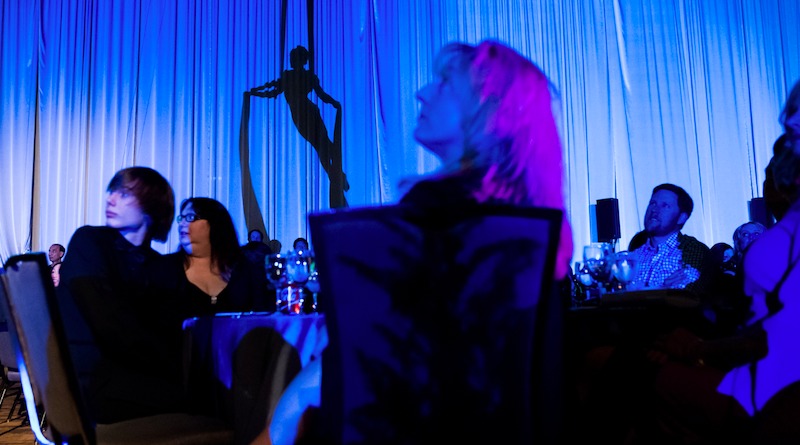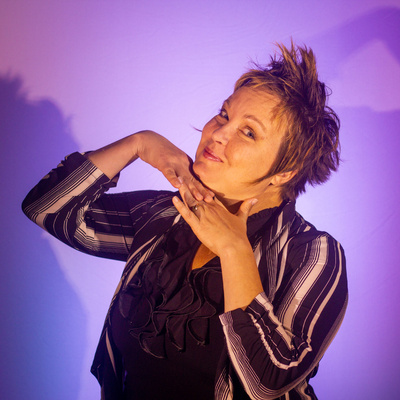What’s your Unique Value as a Performer?

Sometimes you know you are a perfect fit for a show, but how do you convince the casting director, hiring team or client that you are the one they’ve been looking for?
As the circus industry continues to grow, it’s more important than ever to understand your Unique Value Proposition to help you stand out from the crowd and showcase your unique value!
What is a Unique Value Proposition?
I’m talking about what’s known in the marketing world as yourUnique Value Proposition (UVP). Don’t be turned off by thinking that it’s just marketing jargon or something that only big companies need to worry about.
It’s about owning a unique place in your market, and in the mind of the people you want to work with. It’s also about getting clear on what you want to be known for. That’s the ‘unique’ part.
But the magic truly happens when you are able to describe your talents and expertise in a way that communicates the benefit to the people hiring you. And that’s the ‘value’ part.
When you are able to connect the dots between what makes you unique, and how that brings value to others, that’s when you can truly stand out from the crowd!
For companies, this may be a standalone statement, of 1-2 sentences. But for performers, this can be as simple as weaving your unique value into your bio or act description.
I like to keep it simple and think of this as proposing the value of my uniqueness. You see what I did there?
Consider The Benefit to Others
Have you ever heard of the phrase “What’s in it for me?” It’s an expression that acknowledges that on some level, we’re innately drawn towards the people, places, and things that make our lives easier and more enjoyable. And when we’re presented with an option, we unconsciously ask, “What’s in it for me?” as part of our decision-making process.
When you are applying for a job or auditioning for a show, you can flip that, and ask, “What’s in it for them?” You can ask this question from the viewpoint of the audiences you perform for, or the cast and crew of a show, or the casting director or hiring manager.
First, think about what the audience gains from watching you perform. How are they transformed? What’s the experience you provide?
Then, think about your colleagues. What do you bring to the creation process or the actual run of a show that makes things more enjoyable for the team?
And then, ask this from the viewpoint of a casting director or a producer. How can you make their job easier? How will you make their show better?
Whenever you have to pitch your act or skills for a show, taking a moment to stop and ask, “What’s in it for them?” will instantly increase your desirability, because it shows you are not just thinking about yourself or your act alone.
For example, in a bio you might say something like:
“XYZ Duo has toured internationally for 15 years and is fluent in four languages.”
But, when asking what’s in it for them, you could change it to:
“With 15 years of international touring, this multi-lingual duo understands the importance of using physical comedy to connect with audiences around the world.”
The difference between these two statements is the first one states the duo’s unique qualifications but leaves it up to the reader to figure out what value this duo’s experience will bring to the show. Whereas, the second one helps connect the dots between the qualification and the value. So, if I was casting for a show aimed at connecting with an international audience, the second statement immediately helps me understand that this duo can be an asset for this show.
How to Find Your Unique Value Proposition-An Exercise
So, how do you create this magical unicorn of a statement?
Here’s a fun exercise to turn your qualifications, skills, and features into benefits. You’ll generate more material here than you’ll need, but the process can boost your confidence and even give you more ideas for your social media and website content.
- You can start by making two columns, and let’s call the left column Unique and the right column Value.
- In the Unique column, write out your top three qualifications. Think of things like notable shows you’ve been in, awards you’ve won, and/or highlights from your education or training.
- Below that, write what is unique about your skillset. Do you combine skills in a unique way, use a unique prop, or have something unique about your presentation or delivery? If you’re auditioning for smaller shows, you can include supplementary skills that can help a production, like sewing, makeup, marketing, etc.
- Below those, write out the most unique features of your act or skill set. These are all the things that are included, like costuming, props, audience interaction, etc.
- In the Value column, go through each item listed and ask yourself, “What’s in it for them?” You might want to ask it a couple of times to dig deeper than the first thing that comes to mind. And remember, you can ask this from the perspective of the audience, the cast and crew, or the hiring team.
- If you get stuck on this part, ask past directors and castmates that you’ve worked with to describe how you were a benefit to the team. Look back at any reviews or testimonials of your performances that talk about the audience experience. Pay attention to the words that people use to describe you. Ask a friend to keep asking you, “What’s in it for them?” and try to find the answers through conversation. Just keep thinking about how your qualifications, skills and features provide value to the job you’re applying for.
Putting It All Together
Once you get all of these answers, you can pull out the strongest ones and make a one or two-sentence statement, or weave the pieces into your bio, your profile description on CircusTalk, and absolutely in cover letters when applying for jobs! The more you can make each of those cohesive, the better you will convey your unique value and present yourself as the perfect fit. When your unique value intersects with your dream job, everyone benefits!
Feature photo of Animate Objects Productions by Phototainment. Editor's Note: At StageLync, an international platform for the performing arts, we celebrate the diversity of our writers' backgrounds. We recognize and support their choice to use either American or British English in their articles, respecting their individual preferences and origins. This policy allows us to embrace a wide range of linguistic expressions, enriching our content and reflecting the global nature of our community.
🎧 Join us on the StageLync Podcast for inspiring stories from the world of performing arts! Tune in to hear from the creative minds who bring magic to life, both onstage and behind the scenes. 🎙️ 👉 Listen now!
